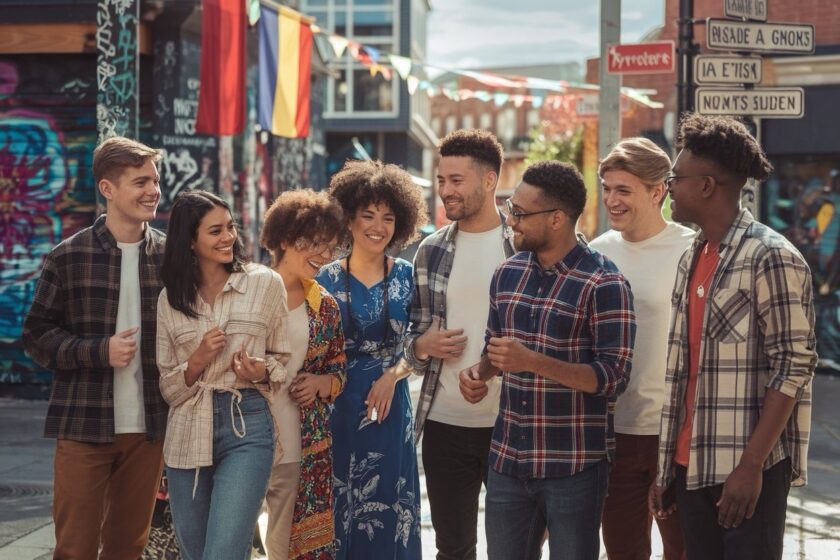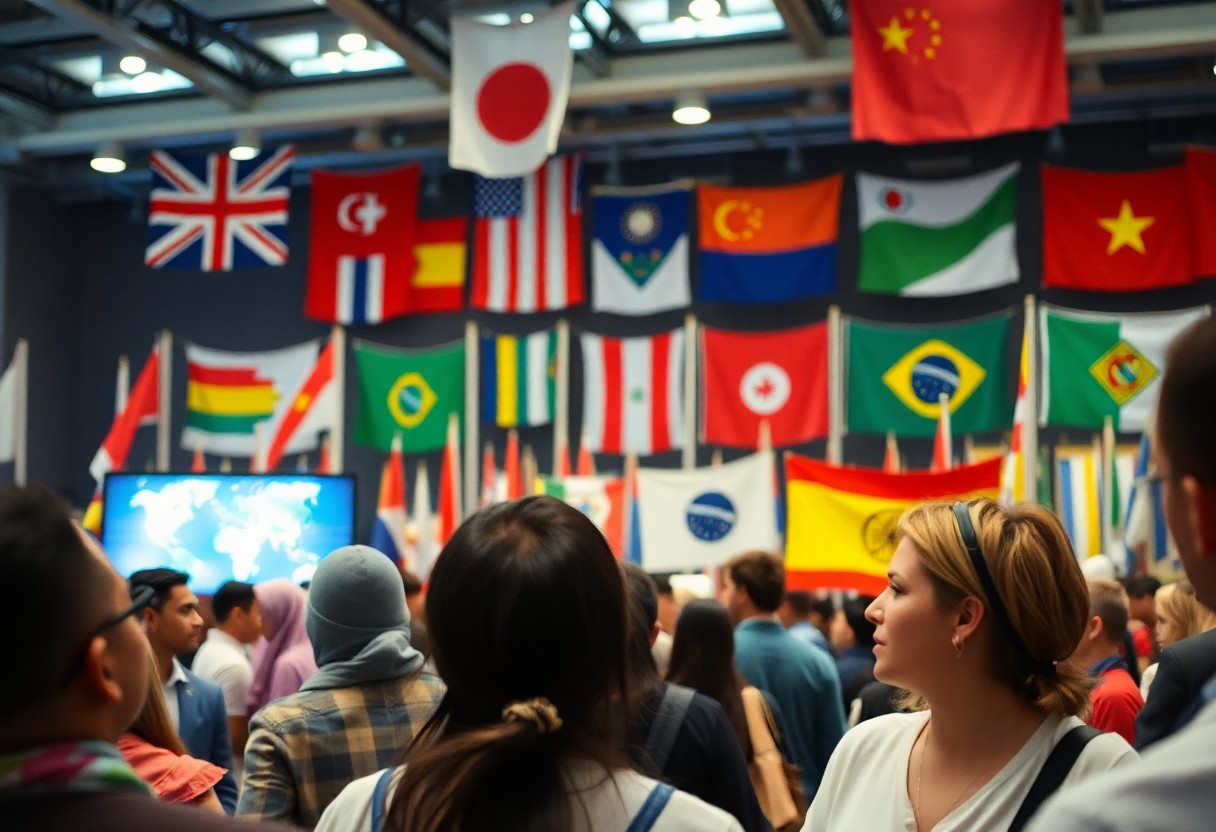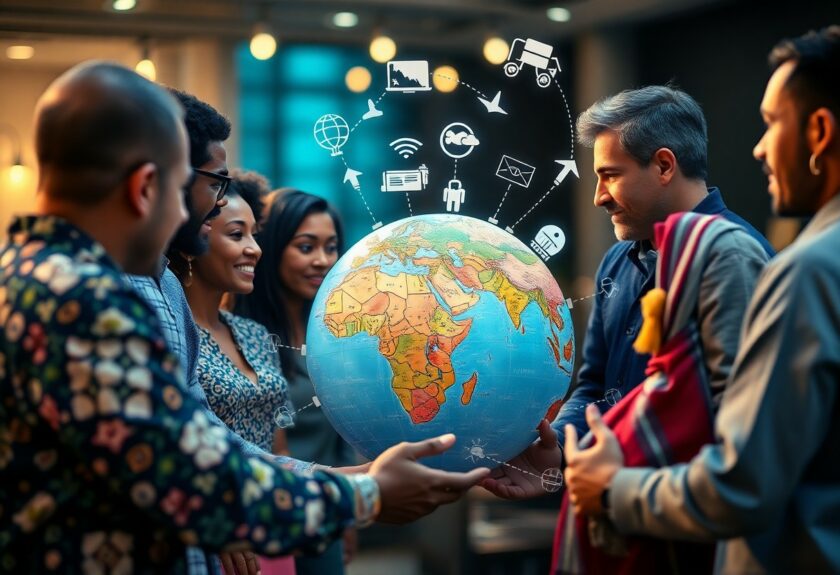With your personal experiences and perceptions shaped by historical occurrences, it is evident that major world events deeply influence cultural identity and social awareness. These events, from wars to movements for equality, alter societal narratives and challenge individual beliefs. Your understanding of diverse cultures expands as you witness the resilience and innovation that arise in response to such challenges. This blog post explores how these pivotal moments have shaped not only collective identity but also your perspective as a global citizen, contributing to a richer tapestry of human experience.
Historical Context
To understand the impact of major world events on cultural identity and social awareness, it is important to explore the historical context that shaped these developments. Events such as wars, revolutions, and economic crises have profoundly influenced societies, providing a backdrop against which individuals and communities define their identities. This rich tapestry of history ultimately conditions your perceptions and responses to the world around you.
Major World Events of the 20th Century
Among the significant world events of the 20th century were the two World Wars, the civil rights movements, and the decolonisation of numerous nations. Each of these occurrences not only altered the geopolitical landscape but also played a pivotal role in reshaping cultural identities. As a result, you may find that these events have fostered a deeper sense of belonging and a wider awareness of social issues in contemporary society.
Cultural Shifts and Responses
Below the surface of historical upheaval lies a complex realm of cultural shifts and responses shaped by these major events. Your understanding of culture is invariably influenced by the societal changes that arise from crisis and conflict.
In fact, cultural shifts in response to significant world events often lead to profound transformations in societal values and norms. These responses can manifest in art, literature, and social movements that reflect the collective consciousness and struggles of a population. For example, in the aftermath of World War II, you witnessed the rise of existentialism, which questioned the nature of identity and meaning. Similarly, the civil rights movements ignited a wave of awareness regarding racism and equality, urging you to reflect on your personal beliefs and societal responsibilities. These shifts can foster unity and encourage you to engage with your community, ultimately redefining your understanding of cultural identity.
Globalization and Cultural Identity
If you consider the implications of globalization, you will see how it profoundly shapes cultural identity. It allows for the exchange of ideas, traditions, and values across borders, leading to enriched cultural experiences. However, it also poses questions about the preservation of local cultures as global influences seep into daily life. This dynamic creates an ongoing dialogue about how you define your identity in an interconnected world.

The Influence of Technology
For many, technology serves as a double-edged sword in the context of cultural identity. While it facilitates global communication and facilitates the sharing of diverse cultural perspectives, it can also lead to the dilution of local customs and practices. This means that you may find yourself at the intersection of technological advancement and cultural preservation.
The Challenge of Cultural Homogenization
At the heart of globalization lies the challenge of cultural homogenization, where dominant cultures overshadow local traditions. You might notice that as popular culture spreads, unique cultural expressions risk being drowned out by a singular narrative. This raises concern for your own identity as you navigate through a world increasingly influenced by mainstream trends.
And while cultural homogenization can facilitate greater global understanding, it can also lead to the loss of traditional practices and languages, making it dangerous for your cultural heritage. Embracing local customs and fostering strong connections to your identity becomes ever so important. You can actively resist this phenomenon by celebrating diversity and advocating for the recognition and preservation of unique cultural identities in your community. Ultimately, you hold the power to balance global influences with your rich local traditions.
Social Movements and Awareness
Some of the most significant changes in cultural identity stem from social movements, which have a profound impact on public consciousness and awareness. These movements bring attention to pressing social issues, challenge established norms, and foster a sense of community among those advocating for change. By engaging with these movements, you enhance your understanding of diverse perspectives, ultimately enriching your own cultural identity and social awareness.
The Role of Activism in Cultural Identity
Awareness of social inequality and injustice often spurs individuals to engage in activism, which plays a vital role in shaping your cultural identity. Through participation in various campaigns or movements, you can align your values with collective goals, fostering a sense of belonging and shared purpose. By standing up for causes that resonate with you, you not only contribute to the fight for change but also cultivate your own identity within a larger narrative of activism.
Case Studies: Significant Movements
Cultural identity is profoundly influenced by major social movements, which illustrate the power of collective action and the quest for equality. You can examine these case studies to understand the *impact* and *outcomes* of significant movements:
- Women’s Suffrage Movement – By 1928, women in the UK gained equal voting rights, fundamentally altering societal norms.
- Civil Rights Movement (USA) – Led to the enactment of the Civil Rights Act in 1964, promoting equality regardless of race.
- LGBTQ+ Rights Movement – In 2013, the UK legalised same-sex marriage, pivotal for advancing LGBTQ+ rights.
- Environmental Movement – The *1992 Earth Summit* placed sustainable development on the global agenda, raising social awareness about ecological issues.
This exploration of case studies not only highlights the *historical significance* of these movements but also demonstrates their lasting impact on cultural identity. As you investigate into these movements, you’ll uncover details about their *challenges* and *triumphs*. Each case illustrates how activism can lead to considerable social change, as well as how the voices of those involved can profoundly shape *societal values*. Understanding these dynamics allows you to appreciate the role of activism in constructing your own cultural narrative and drives your engagement in contemporary social issues.
The Impact of Migration
Not only does migration reshape demographics, but it also transforms cultural identities. As individuals move across borders, they carry their traditions, languages, and beliefs, which can lead to both the enrichment of host communities and the dilution of their own cultural backgrounds. This dynamic can create a complex interplay of identities as people try to navigate their new environments while maintaining connections to their origins.

Cultural Exchange and Enrichment
Before migration, cultures may exist in silos, but the movement of people fosters a vibrant tapestry of interwoven traditions. As migrants introduce their customs, cuisines, and perspectives, they can provide fresh insights and creativity to their new surroundings. This exchange not only enhances social dynamics but also promotes understanding and appreciation of diversity within communities.
The Struggles of Diaspora Communities
Around the world, diaspora communities face unique challenges that can hinder their integration and identity preservation. From language barriers to discrimination, these obstacles can lead to feelings of isolation and struggles with belonging. Additionally, the pressure to assimilate may conflict with the desire to preserve cultural practices, creating a tug-of-war between two worlds.
To fully appreciate the struggles of diaspora communities, you must consider the myriad of emotional and social obstacles they encounter. The desire for acceptance in a new land often clashes with the need to retain one’s cultural heritage, leading to an internal conflict that can be overwhelming. Many face economic hardships due to limited job opportunities, further exacerbated by biases against their ethnic backgrounds. The lack of a support network can render them vulnerable to mental health issues. Thus, your understanding of these communities’ experiences can foster empathy and promote social awareness, ultimately contributing to more inclusive societies.
Education and Cultural Awareness
Keep in mind that education plays a significant role in shaping your cultural awareness and identity. Through various forms of learning, you absorb diverse experiences and perspectives that not only broaden your understanding but also enrich your sense of belonging in an increasingly interconnected world.
Curriculums Shaping Identity
The content and structure of curriculums significantly influence how you perceive various cultures and social issues. By incorporating a wide range of subjects that reflect the diverse identities of society, education systems help you build empathy, develop critical thinking skills, and foster a sense of shared responsibility towards your community.
The Influence of Multimedia
After all, multimedia has become an integral part of education, transforming the way you engage with culture and society. Various platforms, from documentaries to social media, expose you to different narratives and histories that can shape your understanding and attitudes.
Another important aspect to consider is that multimedia not only enhances your learning experience but can also present dangerous stereotypes or misinformation if not critically assessed. The power of visual narratives and digital storytelling can have a profound impact on your perceptions, influencing your beliefs and emotions. On the positive side, multimedia offers a platform for marginalised voices, encouraging you to explore underrepresented cultures and perspectives, ultimately fostering a more inclusive understanding of the world around you.
Contemporary Issues
All around the world, contemporary issues significantly influence cultural identity and social awareness. Global events, from socio-political movements to economic shifts, redefine how cultures evolve and respond to challenges. You can explore various Social Impacts in your community, allowing for a deeper understanding of your identity in this fast-paced world.
The Rise of Nationalism
Beside the ongoing changes in society, there is a noticeable rise of nationalism that impacts how you perceive cultural identities. This resurgence often fuels division, as you may see increased emphasis on ethnic or national roots, either fostering a sense of pride or leading to exclusionary attitudes towards others.
Cultural Identity in the Age of Climate Change
Below the surface of environmental crises, cultural identity faces a profound transformation due to climate change. As you navigate through unpredictable weather patterns and natural disasters, your connection to the environment and its cultural significance grow increasingly important.
Issues such as climate change force you to reassess the links between your cultural practices and environmental sustainability. By embracing eco-centric values, you can promote resilience and adaptability in your community. The challenge lies in finding a balance between preserving cultural heritage and adopting new strategies to combat environmental threats. As you engage with these dilemmas, consider the positive potential for cultural renewal, where traditional knowledge integrates with contemporary practices for a sustainable future.
Summing up
Taking this into account, you will find that major world events significantly shape cultural identity and social awareness. These occurrences challenge your perceptions and encourage reflection on your values and beliefs. By engaging with the consequences of these events, you can develop a more nuanced understanding of the diverse cultural landscapes that influence society today. Ultimately, your awareness of these dynamics enables you to foster greater empathy and connection within a global community, paving the way for more inclusive dialogues and collaborations.
FAQ
Q: How do major world events shape cultural identity?
A: Major world events, such as wars, pandemics, and social movements, can significantly influence cultural identity. These events often challenge existing values and norms, prompting communities to reevaluate their beliefs and traditions. For instance, during the civil rights movement, people’s understanding of race and equality evolved, leading to a broader recognition of diversity and a shift in cultural narratives. Similarly, global events like the COVID-19 pandemic have highlighted interconnectedness, prompting a reappraisal of health systems and community values, thereby impacting the cultural identity of societies as they adapt to new realities.
Q: In what ways do significant historical events enhance social awareness?
A: Significant historical events often act as catalysts for increased social awareness by exposing individuals to diverse perspectives and experiences. For example, movements such as feminism and LGBTQ+ rights have brought attention to issues of inequality and discrimination, encouraging critical discussions around gender and sexual orientation. Furthermore, events like climate change protests have raised awareness about the environment, prompting individuals and communities to consider their roles in addressing global challenges. Through these events, people become more conscious of social injustices, leading to a greater sense of responsibility and action within their communities.
Q: Can cultural identity become more unified due to major world events?
A: Yes, major world events can foster a sense of unity within cultural identity, particularly in response to shared challenges or adversities. Events such as natural disasters or acts of terrorism often galvanise communities, prompting individuals from various backgrounds to come together for support and resilience. This solidarity can enhance a collective cultural identity, as people engage in collaborative efforts to rebuild and support each other. Additionally, during events like the Olympic Games, global participation often nurtures a sense of collective pride and identity, as nations unite to celebrate their heritage while also promoting mutual respect and cultural exchange.



